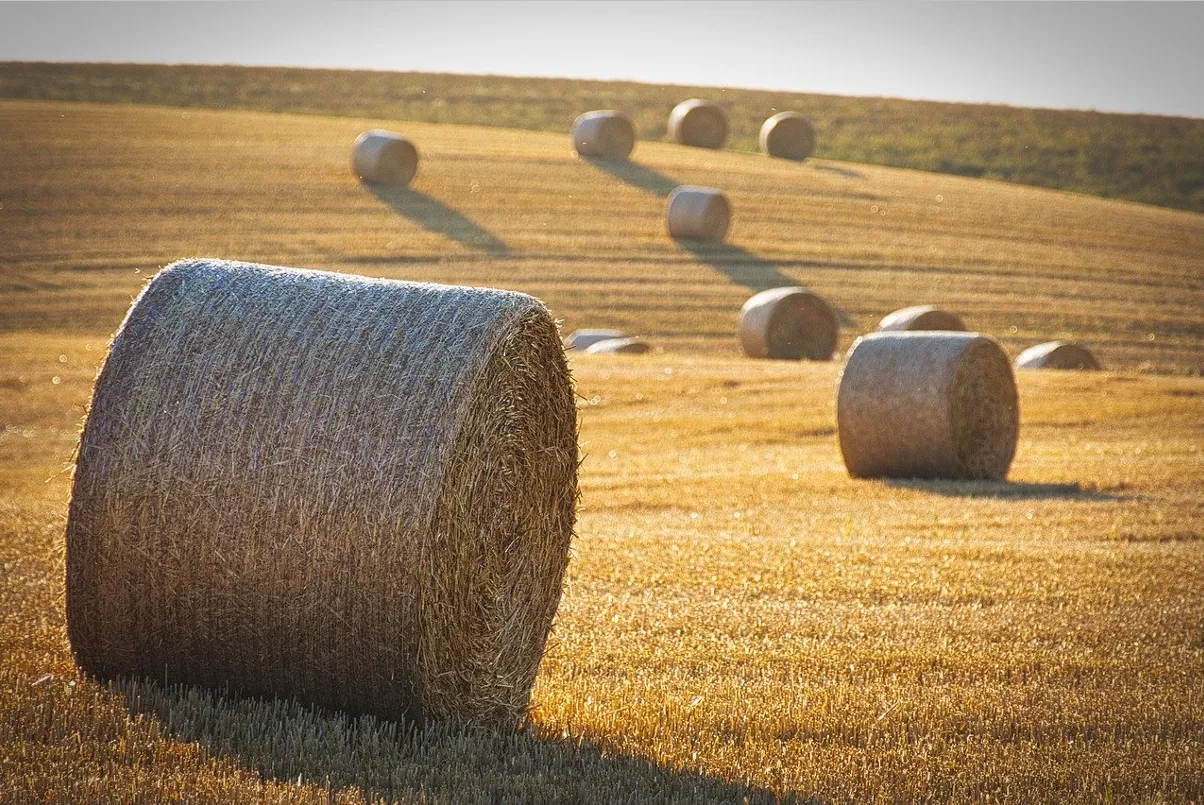
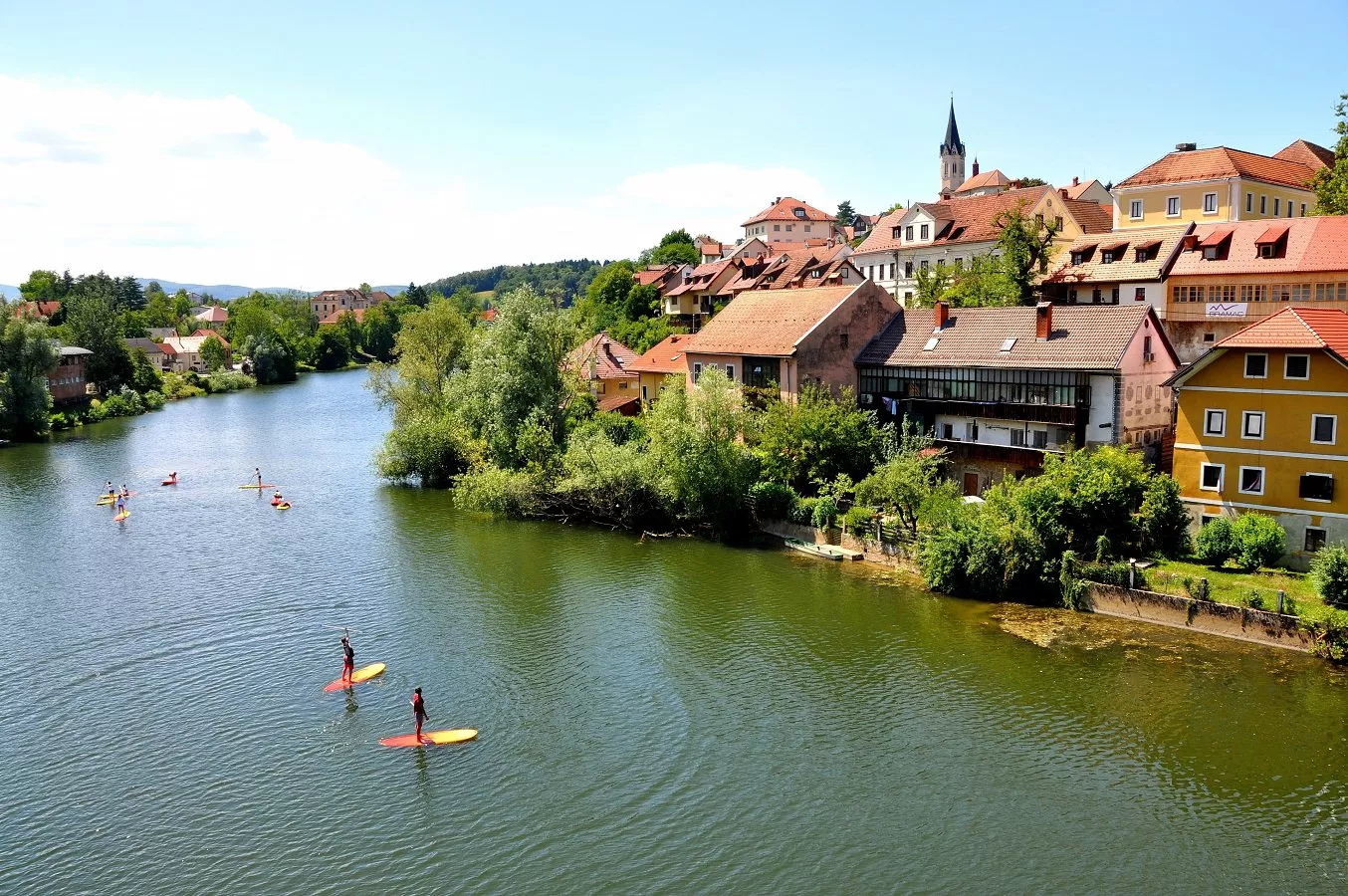
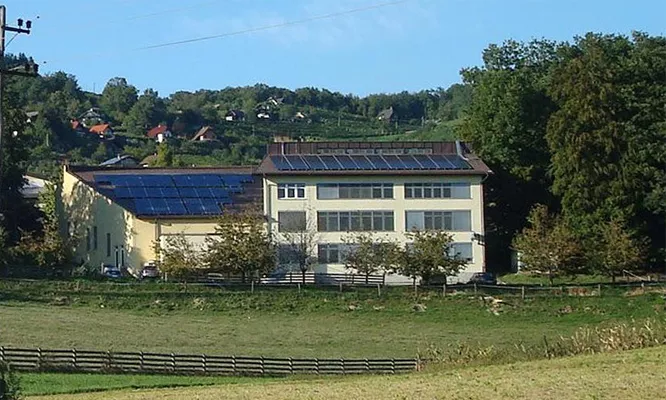

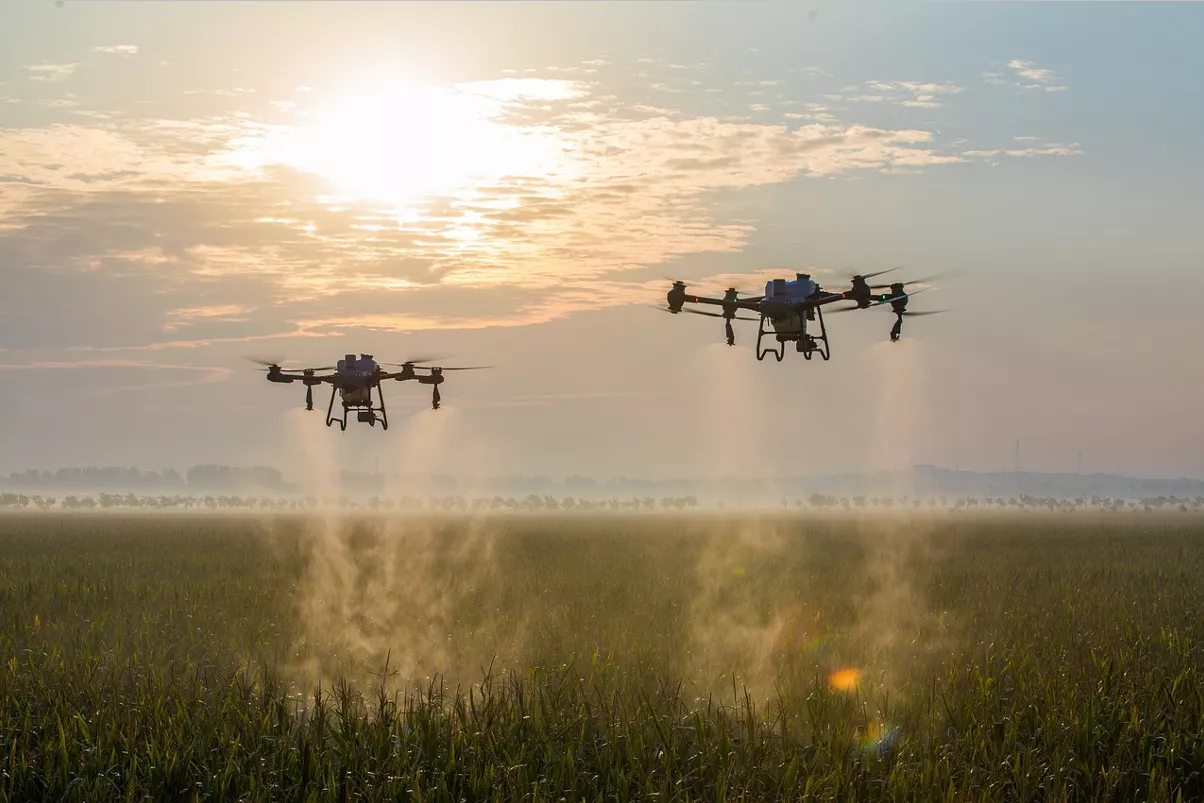

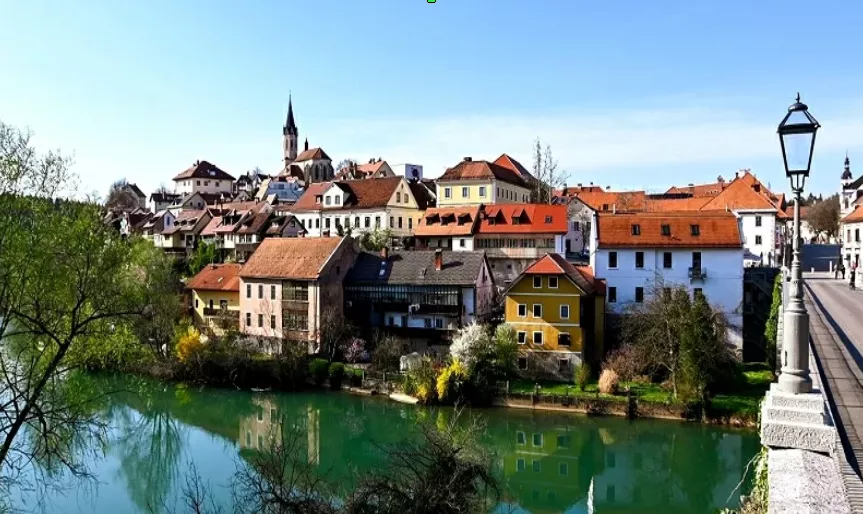
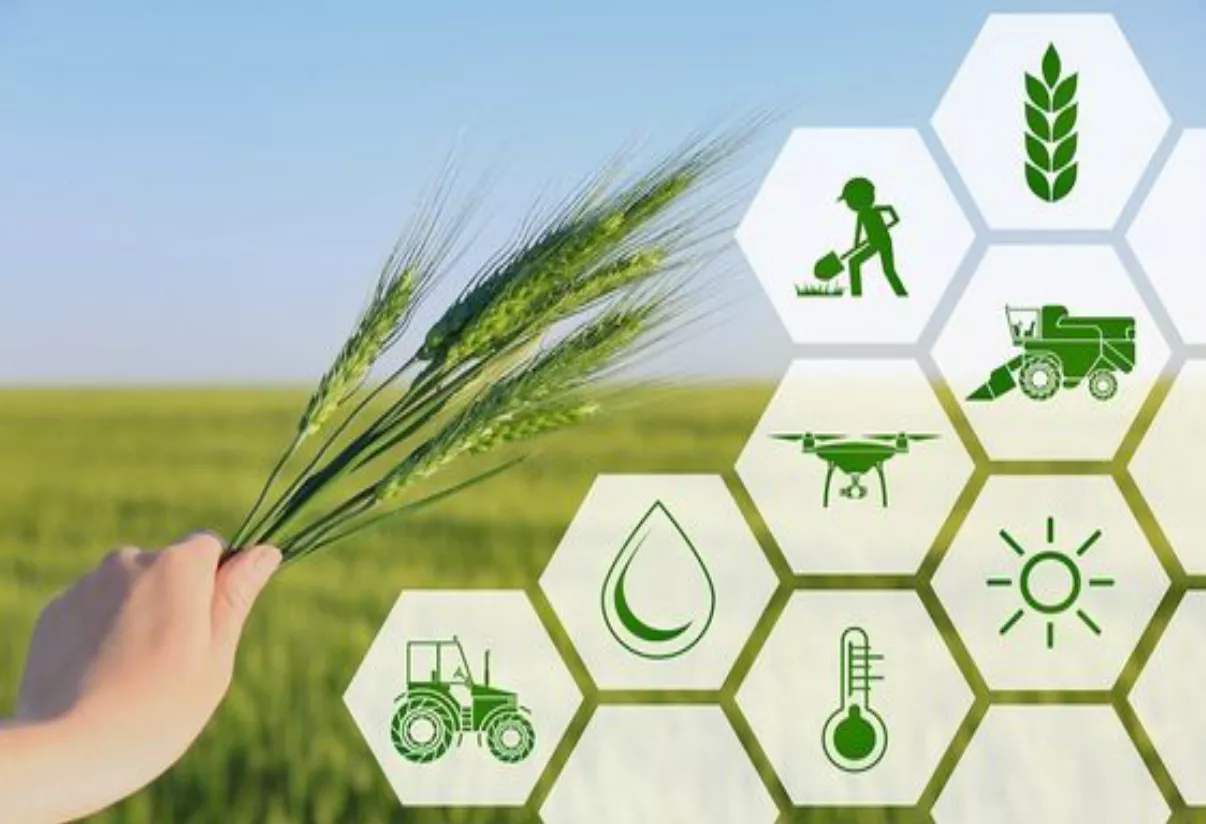


About College in short
The College of Landscape Management Grm Novo mesto is an independent higher education institution, which educates on first-level professional study program Business Management in Landscape with a course in tourism, economy, and logistics.
The educational program Business Management in Landscape (Bachelor) is registered and accredited with the Slovenian Quality Assurance Agency for Higher Education (NAKVIS), a full member of the European Association for Quality Assurance in Higher Education (ENQA) and European Quality Assurance Register for Higher Education (EQAR). The 1st level program lasts for six semesters (3 full years). The language of instruction is English.

Graduates can be employed:
- in public institutions,
- at administrative units, municipalities, and other public institutions,
- in the tourism sector,
- in the economic sector,
- in landscape parks,
- on local and at home farms,
- in logistics,
- in development agencies,
- in energy companies and elsewhere.
During their studies, students acquire knowledge and skills that they can also use on their entrepreneurial path. The thesis themes can be chosen from different fields like landscape, tourism, logistics, economy, and energy.

Novo mesto is the economic and cultural center of Dolenjska, the region in south-eastern Slovenia. As a regional center of national importance, Novo mesto has good opportunities and needs for accelerated development of higher education and research spheres. Novo mesto is the organizer of various social and project events where students can take advantage of the opportunity to get to know and connect more with each other, as well as with other students' faculties.

The College focuses on life sciences, logistics, organic farming, forestry, environmental protection, and tourism. By training competent experts and establishing research and practical collaborations with local stakeholders, we are co-responsible for the development of tourism and rural activities.
Our vision of the College is encompassed by the slogan With a tradition for the advanced countryside.

Internationally, as the recipients of the Erasmus+ charter, we actively participate in the Erasmus+ projects and other forms of international partnerships, which enables our students to apply for internships in foreign enterprises and education institutions. We provide students and lecturers with state-of-the-art laboratories and other teaching facilities, as well as a variety of hands-on experiences at the Inter-Entrepreneurial Training Center and the Institute for Landscape Management.
We provide various learning subjects such as Logistics, Challenges in Agriculture, Rural Management, Alternative Energy, New Challenges in Livestock, and Nature Conservation. Important subjects include Tourism as well. Sustainable tourism enables students to acquire knowledge and skills, such as Sustainable Development with a Focus on Natural Resources, Entrepreneurship and Marketing, Integrated Rural Development, Rural Tourism, Renewable Energy, Ecoremediation, Adventure in Tourism, and Tourism Planning.
The aforementioned educational contents contribute to the development of the circular economy in tourism which provides many opportunities for women in rural areas who can consequently develop entrepreneurial skills in agriculture. Obtaining interdisciplinary related theoretical and practically useful knowledge and research is of utmost importance for the development of the Slovenian countryside, which has to be seen as a great opportunity for the third millennium and the countryside of the future.

Details about College
The brief history of the Landscape Governance College
The story of the Landscape Governance College, a higher education institution established by Grm Novo mesto ― the Centre of Biotechnics and Tourism on one hand and the Municipality of Novo mesto on the other, has quite a few chapters.
Since 2004, the desire to establish a university based in Novo mesto has been clearly expressed by the Municipality of Novo mesto. During this time, serious ideas began to emerge with reference to the establishment of the institution of higher education which would serve as an upgrade of other educational institutions within Grm Novo mesto, with clear-cut academic ambitions. Consequently, both the Municipality and Grm Novo mesto joined forces to establish the Landscape Governance College.
Therefore, in 2006, we established a project team to take the necessary steps for the establishment of the new educational institution and also for the accreditation of the higher professional education programme carried out by the Landscape Governance College.
In 2008, together with the University and Research Center Novo mesto, we prepared an application for the accreditation of the Landscape Governance College GRM Novo mesto (henceforth the College) and the establishment process formally began.
Major historic turning points
2012 Accreditation of the institution
2012 Establishment and entry in the court register
2013 Accreditation of study programmes
2014 Entry into the record
2014 Beginning of the 1st cycle study progamme
2014 Obtaining the Erasmus Charter for Tertiary Education 2014-2020 (ECHE)
2016 The first defense of the thesis
2016 The first hosting of students abroad
2016 The first hosting of lecturers abroad
2016 The first edition of the magazine Journal of Landscape Governance
2018 The first ceremonial diploma award
2019 Reaccreditation of the study programme
2021 Ordinance on the establishment of an independent higher education institution
2023 The second ceremonial diploma award
We are proud of our journey, made so far, and we are confident that in the future we will continue to write further relevant chapters in the history of the College. Some contours of the future are already showing on the horizon in the shape of various applicative projects and the preparation of a master's programme.
In order to give a further boost to the intellectual and research activities at the College, we are developing a master's programme of Landscape Management subdivided into six thematic sections, namely, Communication culture, Innovative rural tourism adventure, Contemporary cooperatives, Environmental systems, Viticulture and winemaking, and Social protection services of the countryside. With the implementation of the new program, we want to better respond to the challenges of modern times in the countryside, as we are aware that the future of Slovenia and the people living in this country vitally depends on the preservation of the countryside, the cultural landscape, the cultivation of high-quality crops and products, and the orientation towards a sustainable and socially responsible development. It is up to us to encourage young people to be educated in these professional areas and to enable them to work in jobs where they will put into practice their ideas and acquired professional, theoretical and practical knowledge. Many young generations are not indifferent to what kind of environment we live in today and how we will live tomorrow. Let’s give them a chance.
Mission
To train excellent staff in those areas of activity that ensure the sustainable use of the rural space, and foster research activities and cooperation with the rural environment.
Vision
To become a meeting point of various public and private institutions from Slovenia and the EU for the development of rural planning and sustainable use of natural resources and thus become the best guardians of rural space, food security, rural population and nature.
Values
• Credibility, ethics and transparency: we develop fair and sound interpersonal relationships, both with students, and in relation to our environment in which we live and work;
• Work: we regard work, physical and intellectual, as a value and this notion is communicated to our students in anticipation they will internalize it.
• Social responsibility for sustainable development: collaborators and students develop a responsible attitude towards the institution, towards the field of their work and towards Slovenian rural areas in order to ensure the well-being of students, employees and society as a whole;
• Creativity: we promote the development of new knowledge and intellectual (self)reflection, we encourage the search for innovative solutions in the environment of our joint and individual activities;
• Affiliation: we encourage the affiliation of employees and students to the institution, our common goals and the environment where we work;
• Accessibility: we encourage co-workers and students to communicate with each other, overcome the status barriers between us and develop innovative communication;
• Academic freedom: we are a politically, religiously, racially and nationally independent institution that promotes tolerance in society and pursues, above all, professional goals;
• Academic excellence: we develop academic excellence in the pursuit of higher education and business excellence in the performance of business functions;
• Employability of graduates: we care for the development of graduates' competences, which enable them to get quality jobs and develop personal careers;
• Humanism, open society, human rights and equal opportunities: we promote the values of tolerance, personal and political freedom and the responsibility for the weaker in human society.
Strategic guidelines
Excellence of pedagogical work
Excellence of applied research work
Employee satisfaction
Satisfaction of students
Satisfaction of clients of our services
Consolidation and visibility in the environment
Development of new professions in response to changing needs
The slogan of the College
With tradition for the advanced countryside!

Information about Study Programme
Higher education professional study program
1st cycle: professional study program
The duration of the study: 3 years, 180 credit points (ECTS)
The academic title: Graduate Engineer of Landscape Management
Abbreviation: B.Sc.
Landscape Governance College Grm Novo mesto was founded in order to educate and train highly qualified employees in the following fields:
• life sciences,
• agriculture,
• forestry,
• fishery,
• environmental protection,
• business and administration.
The programme is markedly interdisciplinary and cannot be defined and determined by one study field alone, as it consists of both social (business) sciences (organisation, management, marketing, economics) and natural sciences (ecology, living environment), environmental protection (management of agricultural and forest land, nature protection), scientific disciplines from the field of landscape and countryside management, regional development and agricultural management.

The Position of the College in Education and Training Classification Systems
I. Classification of study programme according to KLASIUS-P:
According to the classification of educational activities, the programme Landscape Management is placed into the broad field of agriculture, forestry, fishery, veterinary (6); the narrower field of agriculture, forestry, fishery, veterinary (62); the detailed field of agriculture, forestry, fishery, veterinary (620); and nationally specific field of agriculture, forestry, fishery, veterinary (6200).
Classification according to Klasiusu-P-16: 0888
Interdisciplinary educational activities/outcomes; predominantly agriculture, forestry, fisheries and veterinary
II. Classification according to the Slovenian Qualifications Framework (SOK – Slovensko ogrodje kvalifikacij), the European Qualifications Framework (EOK – Evropsko ogrodje kvalifikacij), the Qualifications Frameworks in the European Higher Education Area (EOVK – Evropsko ogrodje visokošolskih kvalifikacij):
SOK: level 7,
EOK: level 6,
EOVK: level 1.
III. The programme – as a result of its markedly interdisciplinary character – extends in different proportions to the following 5 study areas according to the ISCED classification: (34) business and administration, (42) life sciences, (85) environmental protection, (54) manufacturing and processing, (62) agriculture, forestry and fishery. The professional higher education programme Landscape Management is classified as 5B ISCED level (the first level of tertiary education) which incorporates the programmes which are more practical / professional / vocationally specific.
IV. According to the ARIS classification, the College focuses on the following areas: 4 – Biotechnical sciences, 4.02 – Animal production, 4.03 – Plant production, 4.05 – Landscape design, 5 – Social sciences, 5.02 Economics, 5.04 – Administrative and organisational sciences, 5.04.03 – Management.
V. According to the CERIF classification, the research activity at the College falls into the following categories: B 000 (Biomedical sciences), B 003 (Ecology), B 006 (Agronomics), S 000 (Social sciences), S 187 (Agricultural economics), S 189 (Organisational science), S 190 (Management of enterprises), S 191 (Market study), T 000 (Technological science), T 250 (Landscape design), T 260 (Physical planning), T 270 (Environmental technology, pollution control).
VI. The programme extends in different proportions according to the Frascati classification, to the field of Agricultural sciences (4) which is classified as a basic research field. Both the study program and the scientific research focus on the interdisciplinary field of agricultural sciences (4.1 agriculture, forestry, fishery and allied sciences), and also on 5 (Social Sciences), 5.2 (Economics).
Objectives of the programme
The basic objective of the higher education professional study programme Landscape Management is to train the graduate to successfully perform work in the professional field and thus successfully integrate into the work environment.
The general competencies of the graduates
• they are able to record the problem and its analysis and anticipate operational solutions in technological terms or the process of organization and management
• they are able to master standard development methods, procedures and processes,
• they are capable of critical assessment,
• they are able to apply the acquired knowledge in practice in a concrete work process,
• they are able to master development and progress,
• they are autonomous in professional work in the field of landscape, regional development, rural and agriculture,
• they know and understand social systems in the business environment,
• they develop communication skills and skills in the domestic and international business environment,
• they use professional foreign language in oral and written form,
• they are cooperative and capable of teamwork,
• they are capable of interdisciplinary knowledge integration,
• they perform professional activities in compliance with legislation and health and environmental protection,
• they monitor and manage the necessary documentation,
• they are committed to professional ethics.
The general competencies referred to above can be grouped into three groups, namely:
a) instrumental competencies, which include:
• cognitive abilities, ability to understand and use ideas and thoughts, methodological competence to manipulate the environment: organizing time and learning strategies, decision making, problem solving;
• technological skills related to the use of technological devices,
• computer skills;
• ability to master information language skills, e.g. oral and written communication or knowledge of a foreign language;
b) interpersonal competencies:
• the ability of an individual to express their own feelings,
• the ability to criticize and self-criticize, interpersonal characteristics,
• the ability to cooperate and teamwork;
c) systemic competencies:
They presuppose a combination of understanding, receptivity and knowledge that enables the individual to see the connection between parts of the whole, the ability to plan changes and improve systems and plan new systems, etc.
Subject-specific competences:
• graduates manage the landscape with care for environmental protection, taking into account the prescribed legislation,
• they manage the forest according to the requirements of the forest for sustainable development,
• they manage the agricultural area with respect to nature protection, plan urbanization in the countryside in accordance with the characteristics of the landscape,
• they create natural and cultivated parks in the landscape in accordance with the ecology of the landscape,
• they conduct livestock breeding and crop production while protecting the environment,
• they farm in limited production conditions,
• they take care of the landscaping and renovation of villages,
• they are able to understand and apply modern theories in the field of landscape management sciences,
• they select and verify a business idea and introduce it to the rural area with simultaneous marketing and organizational activities,
• they are able to use modern information and communication technology for professional needs,
• they know and understand the institutional framework of work (legislation),
• they are qualified to organize and manage a department or group,
• they communicate professionally with stakeholders (suppliers, customers, competition, experts, politicians, etc.),
• they comprehensively transfer expertise among knowledge users,
• they know and understand the rationale and development of the core profession,
• they solve concrete work problems, using scientific methods and procedures,
• they coherently master basic knowledge,
• they connect knowledge from different fields and applications,
• they place new information and interpretations in the context of the basic discipline (profession),
• they understand the general structures of the basic discipline (profession) and the connection between its sub-disciplines,
• they develop skills for the application of knowledge in a particular professional field.
Enrolment in the first year
The following students are eligible, according to Article 38 of the Higher Education Act to enrol in the first year of the study programme Landscape Management:
a) those who passed a general matura examination,
b) those who passed a vocational matura examination, or final exam in any secondary school program,
c) those who before 1 June 1995 completed any four-year secondary school programme.
The College can restrict the enrollment if the number of applications considerably exceeds the number of available study places.
When limiting enrollment, candidates under points a) and c) are selected according to the criterion of achieved points of general learning success in the third and fourth year (40% of points) and general learning success in matura or vocational exam (60% of points). Candidates under point b) will be selected according to the general success in vocational matura (40% of points), general success in the third and fourth year (40% of points) and success in the exam in the matura course (20% of points).
Conditions for transitions between programs
When approving transitions between programs of the College, the following criteria are taken into account:
• meeting the requirements for enrollment in the new study program,
• the number of available study places,
• the number of years or semesters in the previous study program in which the student has completed all prescribed obligations,
• passed exams and other study obligations from the previous program,
• differential exams and other study obligations that the student must additionally complete if he/she wants to graduate in the new program.
The following transitions are possible at the College:
1. from higher vocational education study programmes (adopted before 01/01/1994) to the higher education professional study programmes,
2. from the programmes of vocational colleges under the Vocational Education and Training Act (Official Gazette of the Republic of Slovenia, No. 12/96) and the Higher Vocational Education Act (Official Gazette of the Republic of Slovenia, No. 86/04) into programs for obtaining higher professional education,
3. among the relevant foreign programs.
The recognition of obligations fulfilled by the student in another programme is based on the comparison of the contents of the fulfilled obligations and the contents of required obligations in the study programme of Landscape Management. The fulfilled obligations from the other programme are recognised if the programme in terms of the topical contents and scope matches the scope and topical contents of the subject from the programme Landscape Management within the amount of 80%.
In this case, the obligation is evaluated by the number of ECTS points, as is the case in this course in the programme run by the College. Examinations completed no more than five years before shall be taken into account.
Transition from higher education study programmes (adopted before 01.01.1994) to the programme for obtaining higher professional education
Transition is possible if the student meets the conditions for enrolment in a professional higher education programme. The above criteria shall apply to these transitions. The condition for enrolment in the third year is a diploma of higher education. All candidates must pass differential examinations in selected subjects of the first and second year until applying for the topic of the diploma thesis, which are prescribed by the competent authority of the College for a total of up to 45 ECTS on the basis of the established differences between the programmes.
Transition from higher vocational college programmes according to the Vocational and Vocational Education Act (Official Gazette of the Republic of Slovenia, No. 12/96) and the Higher Vocational Education Act (Official Gazette of the Republic of Slovenia, No. 86/04)
The above criteria apply to these candidates. Enrolment in the second or third year requires completion of a higher vocational study degree. Enrolled students must pass differential exams arising from differences between programmes until enrolment in the third year. These are prescribed by the relevant authority of the College, totalling a maximum of 45 ECTS credits based on the identified differences between the two programmes.
Conditions for completion of studies
The conditions for completion of studies are the fulfilment of all study obligations prescribed by the study programme in the amount of 180 ECTS credits.
Implementation of studies
The study programme will be fully implemented at the headquarters of the institute, both in the form of full-time (free) and part-time (paid) studies.

CURRICULUM
YEAR 1 (click here to get course Syllabus for Compulsory study units)
Compulsory study units:
-Foundations of European law
-Computer science and informatics in agriculture
-Professional terminology in a foreign language
-Business account and statistics
-Economics
-Sustainable development with a focus on natural resources
-Entrepreneurship and marketing
-Organization and business
-Basics of crop production
-Basics of animal husbandry
-Integrated rural development
-Logistics in agriculture
Conditons for Promotion to year 2
In order to advance from the first to the second year, students must have achieved at least 45 ECTS credits from the first year.
YEAR 2 (click here to get course Syllabus for Compulsory and Elective study units)
Compulsory study units:
- Plant physiology and nutrition
- Wildlife and forest management
- Professional practice 1
- Agri-food chemistry
- Spatial and urban planning of the countryside
- Management of agricultural land
- Professional practice 2
Elective study units 1
- Student selects an elective study unit from the list
- Crop and vegetable production
- Fruit growing and viticulture
Elective study units 2
- Student selects an elective study unit from the list
-Rural tourism
- Additional and complementary activities in rural areas
Elective study units 3
- Student selects an elective study unit from the list
- Winemaking
- Culture and diet
Conditons for Promotion to year 3
In order to advance from the second to the third year, students must complete all obligations from the first year (including possible differential exams) and at least collect 45 ECTS credits from the second year and complete all obligations associated with Professional practice.
YEAR 3 (click here to get course Syllabus for Compulsory and Elective study units)
Compulsory study units:
- Agricultural policy
- Biotechnology and genetics
- Total quality and business excellence
- Diploma thesis
Elective study units (students select 7 (seven) elective study unit from the list):
- Management and Planning of Logistics
- Quantitative methods
- Medicinal and aromatic plants
- Organic farming
- Management of agricultural space
- Forest management and ecosystems
- Renewable sources of energy
- Energy efficiency
- Apiculture
- Ports horse breeding
- Eco-remediations
- Cultivation and use of beneficial organism
- Experiences in tourism
- Tourist offer planning
If conditions for enrolment in a higher year are not meet
A student who does not meet the conditions for enrolment in a higher year may repeat the year or change the study programme or field once during their studies due to non-fulfilment of obligations in the previous direction or study programme.
The College may grant students promotion to a higher year even if they have not met the required conditions in the event of the following circumstances: maternity, prolonged illness, exceptional family or social circumstances, participation in top cultural, sports or professional events.
An extention of student status
A student, in accordance with the applicable legislation, may have his/her student status extended for a maximum period of one year, if: he/she does not enrol in a higher year for justified reasons; for justified reasons, the he/she does not graduate within 12 months after the end of the last semester; the student gives birth during the period of her study.
Diploma Thesis
A diploma or master's thesis can be applied for by a student enrolled in the relevant higher education programme. The student applies for a diploma topic in the Student Office by submitting a correctly completed form OBR-VŠ-GRM-011.
Topics of diploma theses can be suggested by higher education teachers who are members of the Academic Assembly of the College, visiting higher education teachers, companies, organisations and other institutions that cooperate with the College and whose topics are related to their specific problems or problems of the industry or social services, students in agreement with a potential mentor.
OBTAINED KNOWLEDGE AND EMPLOYABILITY
We will enable the students to obtain knowledge in the fields of:
• landscape management with the focus on the protection of rural areas, taking care of the environment and taking into account the prescribed laws in accordance with legislation;
• forest management according to the requirements for sustainable development;
• management of agricultural areas, taking into account nature protection;
• creating natural and cultivated landscape parks in accordance with the ecology of the landscape;
• management of livestock breeding and crop production along with simultaneous nature protection;
• the restoration and renovation of villages and other knowledge.

Graduates can be employed:
- in public institutions,
- at administrative units, municipalities, and other public institutions,
- in the tourism sector,
- in the economic sector,
- in landscape parks,
- on local and at home farms,
- in logistics,
- in development agencies,
- in energy companies and elsewhere.
Advantages of studying at our College:
• comprehensive study of rural areas;
• large selection of study contents within the programme;
• inclusion of the students in the projects;
• contact with top lecturers from practising profession;
• an individual approach to each student.
Students will obtain the knowledge of:
• new sales philosophies in the field of management of rural areas;
• new market opportunities for the development of rural areas (energy, tourism, nature protection etc).
Erasmus+
We are the recipients of the Erasmus+ charter, allowing our students to apply for internships in foreign enterprises and education institutions.
NO ONLY STUDYING, BUT ALSO FUN!!!
Novo mesto is the economic and cultural center of Dolenjska, the region in south-eastern Slovenia. As a regional center of national importance, Novo mesto has good opportunities and needs for accelerated development of higher education and research spheres. Novo mesto is the organizer of various social and project events where students can take advantage of the opportunity to get to know and connect more with each other, as well as with other students' faculties.

As one of the members of the University community of Novo mesto, Landscape Governance College Grm Novo mesto is the organizer of student activities, such as an acquaintance party of students, December bowling and the games of Novo mesto students.
Events in Novo mesto are colourful and dynamic throughout the year:
- cultural events and festivals: Photopub, Jazzinty, Museum gardens, Cvičkarija etc.
- sports events in the sports hall of Marof and the sports hall of Leon Štukl, in open areas and on the tennis court in Loka, in the athletic hall and at the football stadium Portoval, hiking on the Mountain of Trška gora and the slopes of Gorjanci, the river Krka invites for rowing, rafting and suping.
TUITION FEES (for foreign students)
Tuition: 2990 € per year
Enrolement fee: 140 €
Administrative fee: 69,97 €
TUTORING
Tutoring is the systematic assistance to tutors or recipients of tutoring assistance (tutorands) in their studies and academic development. Tutoring at the Landscape Governance College GRM Novo mesto (henceforth the LGC Grm Novo mesto) is regulated by the Rules on Tutoring.
The purpose of the tutoring system is to:
- support recipients of tutoring assistance (tutorands) during their studies, in their intellectual growth and personal progress,
- encourage their participation in scientific research and professional activities of the LGC Grm Novo mesto,
- increase the transition of tutorands to the next year,
- advise tutorands on the elective part of the curriculum,
- organize and provide assistance to tutorands in the study of individual subjects or in professional practice,
- encourage tutorands to participate in extracurricular activities.
The participants in the tutoring system are:
- the Vice-Dean responsible for the implementation of tutoring,
- the tutoring coordinator,
- the tutor who is a higher education teacher and who performs tutoring,
- the student tutor,
- the tutorand who is the recipient of tutoring assistance, who can be any student of the LGC Grm Novo mesto.
The tutor is any higher education teacher who is a member of the Academic Assembly of the LGC Grm Novo mesto.
The student tutor can be any student of the LGC Grm Novo mesto: who has the status of a student, but is not a student of the 1st year of the 1st degree study program, he/she is well acquainted with the rights and duties of students and the functioning of the LGC Grm Novo mesto, its Student Council and other forms of student organization, knows the broader student issues and is familiar with the Policy of Excellence of the LGC Grm Novo mesto and actively implements it.
Forms of tutoring
The tutoring system envisages several forms of tutoring: teacher tutoring, student tutoring, introductory student tutoring, tutoring for students with special needs, tutoring for foreign students, special forms of tutoring.
Teacher, introductory and student tutoring is carried out on a regular basis, and other forms of tutoring are carried out as needed. Tutoring is a form of pedagogical work by which tutors systematically help tutorands in their studies with the aim of fostering their optimal intellectual development.
INTRODUCTORY STUDENT TUTORING is intended for students when enrolling in higher education. The introductory student tutor can be any student of the LGC Grm Novo mesto, who, in addition to the criteria referred to in Article 9, also demonstrates a willingness to assist students in the first year of study at the LGC Grm Novo mesto in joining the process of higher education.
TUTORING FOR STUDENTS WITH SPECIAL NEEDS is a form of assistance for students who have the status of a student with special needs. The tutor advises the student with special needs within the framework of those abilities that enable them to quickly adapt and successfully integrate into study work and student life.
In addition to the tasks referred to in Article 9, the tasks of the tutor for students with special needs are: to provide assistance in adapting the mode of study that is most appropriate for the student with special needs and to timely direct the student with special needs to the appropriate professional advisory services to solve the problems that arise during their studies.
TUTORING FOR FOREIGN STUDENTS
Tutoring for foreign students is a form of assistance to foreign students who are not citizens of the Republic of Slovenia or who take part in a study exchange at the LGC Grm Novo mesto. The purpose of this type of tutoring is to help them overcome cultural differences and adapt to a new environment. The tasks of the tutor for foreign students are also the tasks referred to in Article 9: to contact the tutor before arriving in Slovenia, to provide assistance in getting involved in students' life, events and activities.
Tutoring coordinator: Assistant Professor Alenka Divjak (Ms)
Vice-Dean for Educational Activity: Assistant Professor Jože Podgoršek (Mr)
Tutoring teachers:
Associate Professor Lea-Marija Colarič-Jakše (Ms), responsible for the students in the 3rd year
Associate Professor Andrej Lisec (Mr), responsible for the students in the 1st year (students by the surname of O-Ž)
Assistant Professor Alenka Divjak, responsible for the students in the 1st year (students by the surname of A-M)
Assistant Petra Jeršin, MSc (Ms), responsible for the students in the 2nd year
Tutoring student: Blaž Hrvatin (Mr)
CALLS FOR ENROLMENT
Jun 01, 2023